HSBC 2006 Annual Report Download - page 443
Download and view the complete annual report
Please find page 443 of the 2006 HSBC annual report below. You can navigate through the pages in the report by either clicking on the pages listed below, or by using the keyword search tool below to find specific information within the annual report.-
 1
1 -
 2
2 -
 3
3 -
 4
4 -
 5
5 -
 6
6 -
 7
7 -
 8
8 -
 9
9 -
 10
10 -
 11
11 -
 12
12 -
 13
13 -
 14
14 -
 15
15 -
 16
16 -
 17
17 -
 18
18 -
 19
19 -
 20
20 -
 21
21 -
 22
22 -
 23
23 -
 24
24 -
 25
25 -
 26
26 -
 27
27 -
 28
28 -
 29
29 -
 30
30 -
 31
31 -
 32
32 -
 33
33 -
 34
34 -
 35
35 -
 36
36 -
 37
37 -
 38
38 -
 39
39 -
 40
40 -
 41
41 -
 42
42 -
 43
43 -
 44
44 -
 45
45 -
 46
46 -
 47
47 -
 48
48 -
 49
49 -
 50
50 -
 51
51 -
 52
52 -
 53
53 -
 54
54 -
 55
55 -
 56
56 -
 57
57 -
 58
58 -
 59
59 -
 60
60 -
 61
61 -
 62
62 -
 63
63 -
 64
64 -
 65
65 -
 66
66 -
 67
67 -
 68
68 -
 69
69 -
 70
70 -
 71
71 -
 72
72 -
 73
73 -
 74
74 -
 75
75 -
 76
76 -
 77
77 -
 78
78 -
 79
79 -
 80
80 -
 81
81 -
 82
82 -
 83
83 -
 84
84 -
 85
85 -
 86
86 -
 87
87 -
 88
88 -
 89
89 -
 90
90 -
 91
91 -
 92
92 -
 93
93 -
 94
94 -
 95
95 -
 96
96 -
 97
97 -
 98
98 -
 99
99 -
 100
100 -
 101
101 -
 102
102 -
 103
103 -
 104
104 -
 105
105 -
 106
106 -
 107
107 -
 108
108 -
 109
109 -
 110
110 -
 111
111 -
 112
112 -
 113
113 -
 114
114 -
 115
115 -
 116
116 -
 117
117 -
 118
118 -
 119
119 -
 120
120 -
 121
121 -
 122
122 -
 123
123 -
 124
124 -
 125
125 -
 126
126 -
 127
127 -
 128
128 -
 129
129 -
 130
130 -
 131
131 -
 132
132 -
 133
133 -
 134
134 -
 135
135 -
 136
136 -
 137
137 -
 138
138 -
 139
139 -
 140
140 -
 141
141 -
 142
142 -
 143
143 -
 144
144 -
 145
145 -
 146
146 -
 147
147 -
 148
148 -
 149
149 -
 150
150 -
 151
151 -
 152
152 -
 153
153 -
 154
154 -
 155
155 -
 156
156 -
 157
157 -
 158
158 -
 159
159 -
 160
160 -
 161
161 -
 162
162 -
 163
163 -
 164
164 -
 165
165 -
 166
166 -
 167
167 -
 168
168 -
 169
169 -
 170
170 -
 171
171 -
 172
172 -
 173
173 -
 174
174 -
 175
175 -
 176
176 -
 177
177 -
 178
178 -
 179
179 -
 180
180 -
 181
181 -
 182
182 -
 183
183 -
 184
184 -
 185
185 -
 186
186 -
 187
187 -
 188
188 -
 189
189 -
 190
190 -
 191
191 -
 192
192 -
 193
193 -
 194
194 -
 195
195 -
 196
196 -
 197
197 -
 198
198 -
 199
199 -
 200
200 -
 201
201 -
 202
202 -
 203
203 -
 204
204 -
 205
205 -
 206
206 -
 207
207 -
 208
208 -
 209
209 -
 210
210 -
 211
211 -
 212
212 -
 213
213 -
 214
214 -
 215
215 -
 216
216 -
 217
217 -
 218
218 -
 219
219 -
 220
220 -
 221
221 -
 222
222 -
 223
223 -
 224
224 -
 225
225 -
 226
226 -
 227
227 -
 228
228 -
 229
229 -
 230
230 -
 231
231 -
 232
232 -
 233
233 -
 234
234 -
 235
235 -
 236
236 -
 237
237 -
 238
238 -
 239
239 -
 240
240 -
 241
241 -
 242
242 -
 243
243 -
 244
244 -
 245
245 -
 246
246 -
 247
247 -
 248
248 -
 249
249 -
 250
250 -
 251
251 -
 252
252 -
 253
253 -
 254
254 -
 255
255 -
 256
256 -
 257
257 -
 258
258 -
 259
259 -
 260
260 -
 261
261 -
 262
262 -
 263
263 -
 264
264 -
 265
265 -
 266
266 -
 267
267 -
 268
268 -
 269
269 -
 270
270 -
 271
271 -
 272
272 -
 273
273 -
 274
274 -
 275
275 -
 276
276 -
 277
277 -
 278
278 -
 279
279 -
 280
280 -
 281
281 -
 282
282 -
 283
283 -
 284
284 -
 285
285 -
 286
286 -
 287
287 -
 288
288 -
 289
289 -
 290
290 -
 291
291 -
 292
292 -
 293
293 -
 294
294 -
 295
295 -
 296
296 -
 297
297 -
 298
298 -
 299
299 -
 300
300 -
 301
301 -
 302
302 -
 303
303 -
 304
304 -
 305
305 -
 306
306 -
 307
307 -
 308
308 -
 309
309 -
 310
310 -
 311
311 -
 312
312 -
 313
313 -
 314
314 -
 315
315 -
 316
316 -
 317
317 -
 318
318 -
 319
319 -
 320
320 -
 321
321 -
 322
322 -
 323
323 -
 324
324 -
 325
325 -
 326
326 -
 327
327 -
 328
328 -
 329
329 -
 330
330 -
 331
331 -
 332
332 -
 333
333 -
 334
334 -
 335
335 -
 336
336 -
 337
337 -
 338
338 -
 339
339 -
 340
340 -
 341
341 -
 342
342 -
 343
343 -
 344
344 -
 345
345 -
 346
346 -
 347
347 -
 348
348 -
 349
349 -
 350
350 -
 351
351 -
 352
352 -
 353
353 -
 354
354 -
 355
355 -
 356
356 -
 357
357 -
 358
358 -
 359
359 -
 360
360 -
 361
361 -
 362
362 -
 363
363 -
 364
364 -
 365
365 -
 366
366 -
 367
367 -
 368
368 -
 369
369 -
 370
370 -
 371
371 -
 372
372 -
 373
373 -
 374
374 -
 375
375 -
 376
376 -
 377
377 -
 378
378 -
 379
379 -
 380
380 -
 381
381 -
 382
382 -
 383
383 -
 384
384 -
 385
385 -
 386
386 -
 387
387 -
 388
388 -
 389
389 -
 390
390 -
 391
391 -
 392
392 -
 393
393 -
 394
394 -
 395
395 -
 396
396 -
 397
397 -
 398
398 -
 399
399 -
 400
400 -
 401
401 -
 402
402 -
 403
403 -
 404
404 -
 405
405 -
 406
406 -
 407
407 -
 408
408 -
 409
409 -
 410
410 -
 411
411 -
 412
412 -
 413
413 -
 414
414 -
 415
415 -
 416
416 -
 417
417 -
 418
418 -
 419
419 -
 420
420 -
 421
421 -
 422
422 -
 423
423 -
 424
424 -
 425
425 -
 426
426 -
 427
427 -
 428
428 -
 429
429 -
 430
430 -
 431
431 -
 432
432 -
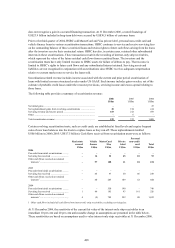 433
433 -
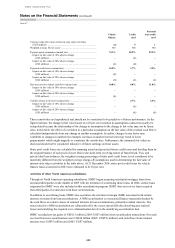 434
434 -
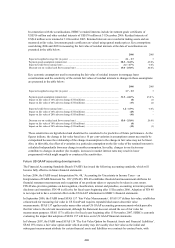 435
435 -
 436
436 -
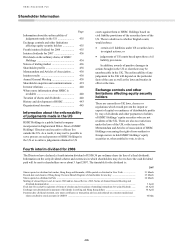 437
437 -
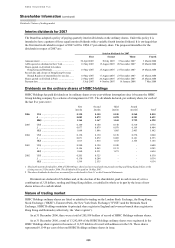 438
438 -
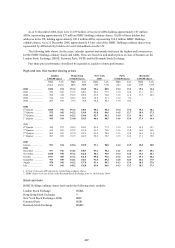 439
439 -
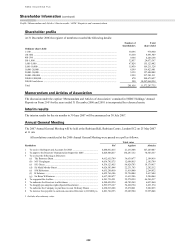 440
440 -
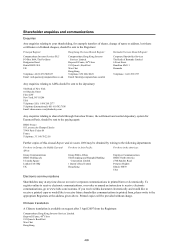 441
441 -
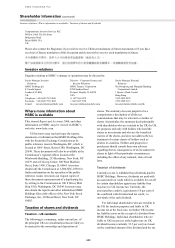 442
442 -
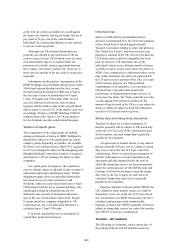 443
443 -
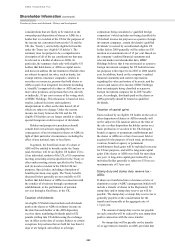 444
444 -
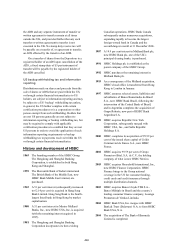 445
445 -
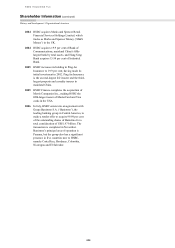 446
446 -
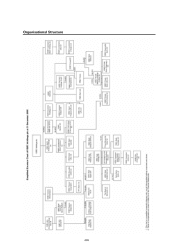 447
447 -
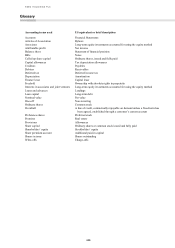 448
448 -
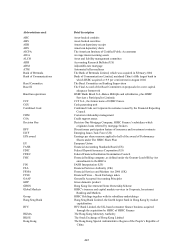 449
449 -
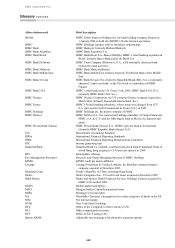 450
450 -
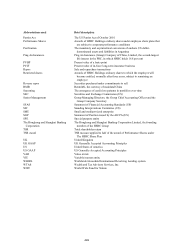 451
451 -
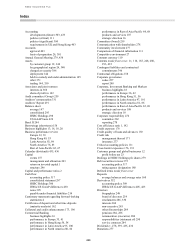 452
452 -
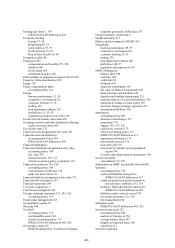 453
453 -
 454
454 -
 455
455 -
 456
456 -
 457
457 -
 458
458
 |
 |
441
credit. The tax credit is available for set-off against
the higher rate liability, leaving net higher rate tax to
pay equal to 25 per cent of the cash dividend.
Individual UK resident shareholders are not entitled
to any tax credit repayment.
Although non-UK resident shareholders are
generally not entitled to any repayment of the tax
credit in respect of any UK dividend received, some
such shareholders may be so entitled under the
provisions of a double taxation agreement between
their country of residence and the UK. However, in
most cases no amount of the tax credit is, in practice,
repayable.
Information on the taxation consequences of the
HSBC Holdings scrip dividends offered in lieu of the
2004 fourth interim dividend and the first, second
and third interim dividends for 2006 was set out in
the Secretary’s letters to shareholders of 4 April,
1 June, 30 August and 5 December 2006. In each
case, the difference between the cash dividend
foregone and the market value of the scrip dividend
did not equal or exceed 15% of the market value and
accordingly, the price of HSBC Holdings US$0.50
ordinary shares (the ‘shares’) for UK tax purposes
for the dividends was the cash dividend foregone.
Taxation of capital gains
The computation of the capital gains tax liability
arising on disposals of shares in HSBC Holdings by
shareholders subject to UK capital gains tax can be
complex, partly depending on whether, for example,
the shares were purchased since April 1991, acquired
in 1991 in exchange for shares in The Hongkong and
Shanghai Banking Corporation Limited, or acquired
subsequent to 1991 in exchange for shares in other
companies.
For capital gains tax purposes, the acquisition
cost for ordinary shares is adjusted to take account of
subsequent rights and capitalisation issues. Further
adjustments apply where an individual shareholder
has chosen to receive shares instead of cash
dividends, subject to scrip issues made since 6 April
1998 being treated for tax as separate holdings. Any
capital gain arising on a disposal may also be
adjusted to take account of indexation allowance
and, in the case of individuals, taper relief. Except
for gains made by a company chargeable to UK
corporation tax, any such indexation allowance is
calculated up to 5 April 1998 only.
If in doubt, shareholders are recommended to
consult their professional advisers.
Inheritance tax
Shares or ADSs held by an individual whose
domicile is determined to be the US for the purposes
of the United States-United Kingdom Double
Taxation Convention relating to estate and gift taxes
(the ‘Estate Tax Treaty’) and who is not for such
purposes a national of the UK will not, provided any
US Federal estate or gift tax chargeable has been
paid, be subject to UK inheritance tax on the
individual’s death or on a lifetime transfer of shares
or ADSs except in certain cases where the shares or
ADSs (i) are comprised in a settlement (unless, at the
time of the settlement, the settlor was domiciled in
the US and was not a national of the UK), (ii) is part
of the business property of a UK permanent
establishment of an enterprise, or (iii) pertains to a
UK fixed base of an individual used for the
performance of independent personal services. In
such cases, the Estate Tax Treaty generally provides
a credit against US Federal tax liability for the
amount of any tax paid in the UK in a case where the
shares or ADSs are subject to both UK inheritance
tax and to US Federal estate or gift tax.
Stamp duty and stamp duty reserve tax
Transfers of shares by a written instrument of
transfer generally will be subject to UK stamp duty
at the rate of 0.5 per cent of the consideration paid
for the transfer, and such stamp duty is generally
payable by the transferee.
An agreement to transfer shares, or any interest
therein, normally will give rise to a charge to stamp
duty reserve tax at the rate of 0.5 per cent of the
consideration. However, provided an instrument of
transfer of the shares is executed pursuant to the
agreement and duly stamped before the date on
which the stamp duty reserve tax becomes payable,
under the current practice of UK HM Revenue and
Customs it will not be necessary to pay the stamp
duty reserve tax, nor to apply for such tax to be
cancelled. Stamp duty reserve tax is generally
payable by the transferee.
Paperless transfers of shares within CREST, the
UK’s paperless share transfer system, are liable to
stamp duty reserve tax at the rate of 0.5 per cent of
the consideration. In CREST transactions, the tax is
calculated and payment made automatically.
Deposits of shares into CREST generally will not be
subject to stamp duty reserve tax, unless the transfer
into CREST is itself for consideration.
Taxation – US residents
The following is a summary, under current law, of
the principal UK tax and US federal income tax
